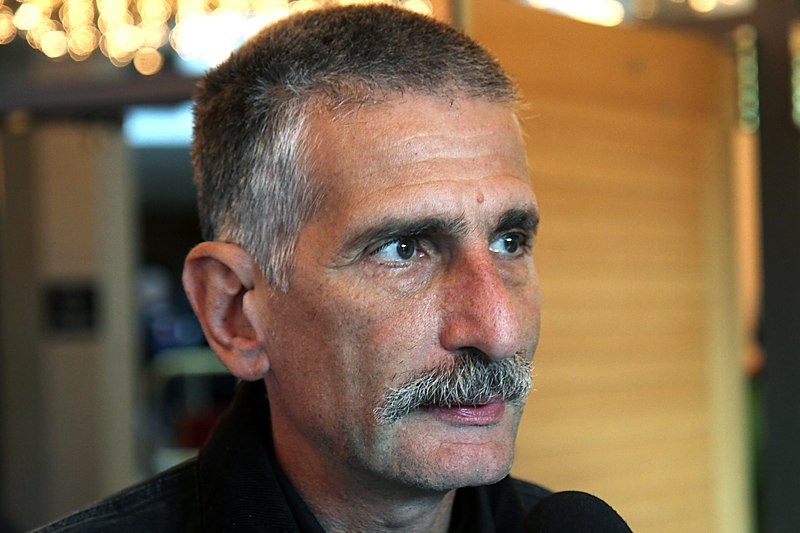THUNDER BAY -- Striking employees at the city’s Bombardier plant are heading back to work.
Members of Unifor Local 1075 Friday morning voted nearly 85 per cent in favour of ratifying their tentative agreement with Bombardier, bringing an end to the labour dispute which began on July 14.
Unifor Local 1075 president Dominic Pasqualino said many of the concessions the company was seeking from workers were taken off the table, prompting the deal.
“It’s been a battle,” Unifor Local 1075 president Dominic Pasqualino said after announcing the voting results. “We were hoping to make more gains but I think the people understood that we’ve done everything we can.”
Bombardier spokeswoman Stephanie Ash said the company is pleased to see a return to normalcy.
“Bombardier Transportation is really delighted with the results of the vote. We’re really pleased our employees have ratified this agreement and we’re looking forward to welcoming them back to work,” Ash said.
Pasqualino said the terms of the offer the union agreed to were “dramatically different” than what was presented earlier in negotiations.
Under the new three-year agreement, current and future workers will remain enrolled in a defined benefit pension plan. Bombardier’s desire to have new hires switched to a defined contribution pension plan was a major point of contention throughout the talks.
But new hires will contribute 25 cents per hour towards the pension plan, an apparent compromise by both sides.
“We’ve said since day one it was going to take a willingness on both sides to compromise to reach an agreement,” Ash said. “We’re pleased that Unifor and Bombardier have been able to find compromises that give us a fair agreement. I think the agreement is fair for both parties.”
Retirement benefits will largely remain the same for those currently employed at the plant. The company had previously been seeking to have employees hired after Dec. 31, 2010 receive a $350 lump sum payout in lieu of early retirement benefits. The only change is that employees must put in at least 10 years of service to receive those benefits.
C.J. Hanlon, who works as a finisher on the Rocket cars at the plant, was hired four days after that proposed cut off.
He said this contract was much better than the one the workers previously voted on in August, when the company appealed for a Ministry of Labour supervised vote on what at the time was said to be their best and final offer.
“Overall when you compare the two this was the better deal of the two and that’s why I think we have the 85 per cent vote,” Hanlon said.
“To ensure I have benefits when I do retire is a good thing and also to have it so new members coming in maintain that right that the people before us fought to get.”
Wages at the plant will remain the same for the first year of the contract, followed by 10 cent per hour raises over the following two years.
Workers will also see a $4 co-pay fee introduced on all prescriptions.
There seemed to be a sense of relief amongst many of the members once they learned they would be returning to work after nearly two months away.
Hanlon said the strike put a lot of pressure on individuals and their families.
“You’re going into a group of 100 people every day and seeing other people are struggling and trying to support their families. A lot of our members make the majority of the money for their families,” Hanlon said.
“I think a lot of people will be able to breathe a little easier knowing they’ll start getting paid again shortly.”
Ash said the company is currently working on their a return to work strategy for the employees, adding it will be a staggered recall and they hope to have everybody back to work within two weeks.
Pasqualino isn’t sure what, if any, impacts the combative tone of the labour dispute will have on relations inside the plant once the workers return.
“Certainly there are going to be some issues. People are upset that the company had been so bitter with us. We’ll have to wait and see what happens,” Pasqualino said.
Brief history of Bombardier, Unifor labour dispute:
- May 8 - Unifor members vote to give union a strike mandate
- July 14 - Unable to reach an agreement, about 900 Bombardier employees go on strike
- July 16 - Bombardier discusses possibility of seeking picket line injunction citing “safety concerns”
- July 18 - Union members picket site of local public relations firm representing Bombardier
- July 22 - Picket-line standoff staged between pickets and company manager.
- July 23 - Company, union reach picket-line protocol agreement
- Aug. 5 - Union, company meet about railcar deliveries expected during strike
- Aug. 12 - Bombardier moves rail car off Montreal Street property
- Aug. 26 - Unifor members reject Bombardier offer during Ministry of Labour supervised vote
- Sept. 2 - Contract negotiations resume
- Sept. 5 - Company, union mutually agree to take a break from talks.
- Sept. 9 - Talks resume.
- Sept. 11 - Bombardier, Unifor Local 1075 reach tentative deal
- Sept. 12 - Unifor members ratify Bombardier offer
